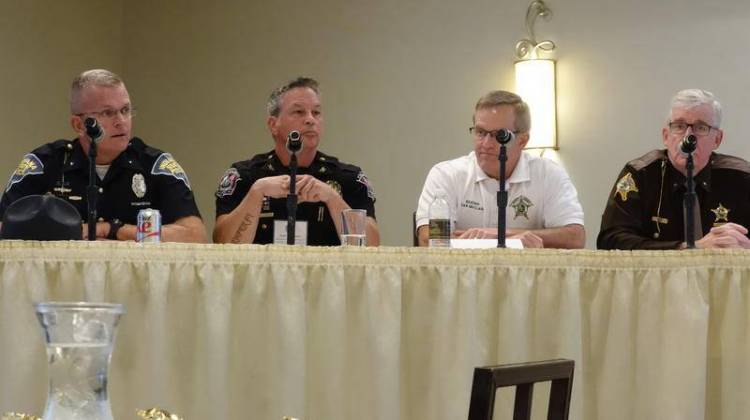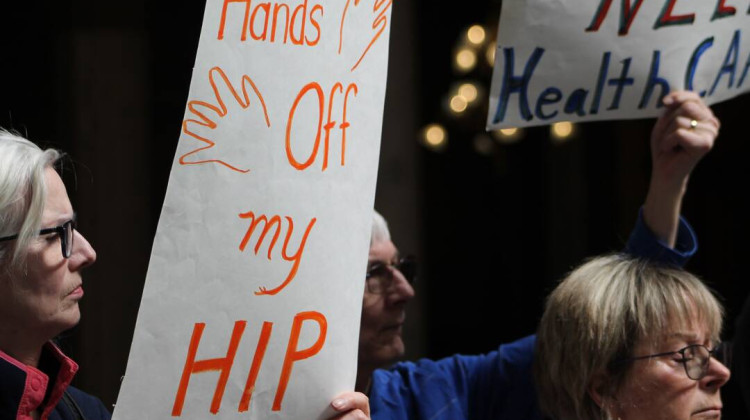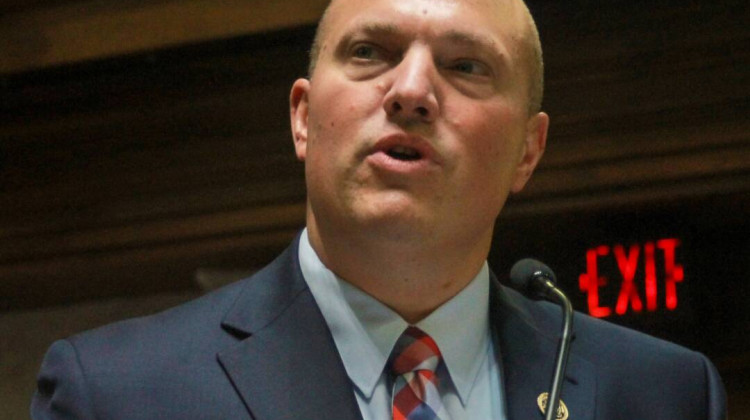In Indiana, experts admit the bar for involuntary treatment — committing someone to medical care without their consent — is high. Currently, if law enforcement deems a person dangerous or gravely disabled, an officer can transport them to a treatment facility against their will.
However, the opioid crisis has law enforcement officials rethinking the current standard. This was discussed at an Indiana State Health Department conference Wednesday in Carmel.
Chief Tom Synan of the Newton, Ohio Police Department sat on the panel with Indiana police chiefs and sheriffs. He was invited to offer an out-of-state perspective on law enforcement’s role in tackling the opioid epidemic.
Synan is pushing to change his state’s policy: allow officers to involuntarily commit overdose survivors into comprehensive treatment.
“We got to get them into the right treatment, which is medically-assisted treatment,” Synan said.
Medication-assisted treatment refers to one of three addiction medicines used to curb cravings: buprenorphine, methadone and naltrexone. From there, Synan said, he’d like to see them transition into long-term recovery.
“We need to revamp how we look at treatment. It’s not just 30,60,90 days,” he said.
But someone who first responders revived after overdosing on opioids doesn’t necessarily fit the current “dangerous or gravely disabled” description, Synan said.
“One of the problems we’re seeing in the city of Cincinnati is 70 percent of people that we Narcan we walk away from, because there’s not probable cause for arrest. They refuse treatment, and they also refuse to go to the hospital,” he said.
Narcan is a nasal spray used to reverse an overdose.
Synan acknowledged how some could find the current policy controversial.
“People say that you can’t force someone into treatment, they got to want it. But studies show that’s not necessarily true,” he said, citing a recent Hazelden Betty Ford report. “Voluntary or involuntary, it’s the same result.”
In Indiana, policies for involuntary treatment vary. Some counties may transport victims to a hospital. If they committed a crime, maybe they’ll detox in prison or later be enrolled in a court-ordered treatment program. Almost all court-ordered programs in the state put inmates in recovery on Vivitrol.
Last April, Governor Eric Holcomb signed Senate Bill 499 into law. The law created a pilot program to allow officers in Tippecanoe, Marion and Wayne counties to involuntarily commit overdose survivors to the nearest treatment facility for up to 24 hours. If the attending physician recommends further treatment, the physician can request a judge’s permission to extend the patient's stay to 72 hours. Marion County, recently applied for $250,000 to launch its pilot program.
“The biggest issue though is we just are very limited on what to transition them into,”said Fort Wayne Police Department Captain Kevin Hunter. “There are very few beds in our county and surrounding counties.”
Fort Wayne plans to open a 100-bed treatment facility in 2018 for those in contact with the criminal justice system. Hunter said it would offer a court-ordered alternative to jail time. However, the county has had some difficulties securing a building.
“The neighborhood didn’t want drug addicts walking through their neighborhood, ” Hunter said.
That’s the challenge, Synan said, changing that stigma:“What I would like for us to do is be able to shift addiction from a crime to a public health issue.”
“This story was produced by Side Effects Public Media, a news collaborative covering public health.
 DONATE
DONATE









 Support WFYI. We can't do it without you.
Support WFYI. We can't do it without you.